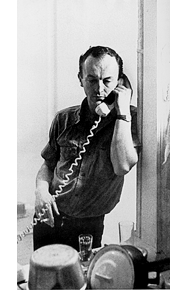Wright, Richard. Native Son. New York: Harper Perennial, 1993.
Finished: 1/12/2011
I’ve taken several African American literature courses over the last 10 years but I had not read Native Son until now. I initially picked it up to get through it before the semester began since it was fairly long. I’m pretty glad I did so because it was difficult to get through—I found myself interested in the daytime but unable to read it in bed or when I was trying to relax. Not difficult in a Joyceian complexity (the prose is actually very clear and concise), but in its somber tone and inherent gruesome nature.
I’m most interested in the ways in which the novel switches between 3rd person and 3rd person omniscient, perspective playing a large role in what the novel is about. Perspective ends up being an extension of a preoccupation with vision, both psycho-social vision—man’s place in the universe, city, fate, and also physical vision—specifically blindness. There is great focus on the eye and whether or not it can see, see appropriately, honestly, authentically, and whether or not what the eye witnesses can be sensed in truth.
This makes sense since much of Bigger’s plight is described through his senses—taste, smell, touch, hearing and seeing. It really reinforces the sometimes-false division between man and society, body and world, and whether or not there is a place where the world or self stops and the rest begins. It seems Wright emphasizes the free movement of sensory information and how it affects the inner-self despite the imposition of artificial but powerful boundaries and limitations created by the government or society in power (in this case in response to race relations).
Another extension of the eye imagery may rest in the idea of an “eye for an eye,” wherein Bigger’s attorney more or less argues that Bigger’s crimes are a response to crimes committed against him. This same dichotomy exists in the conversations about rape, too—Bigger not only willingly commits this action, but claims that he too has been raped, but not in a physical-sexual way. This ties into the themes of helplessness and ambition that are repeated, still coupling with the eye motif in terms of seeing the future, wanting a future, knowing one’s fate or even being prophetic.
Thursday, January 13, 2011
Subscribe to:
Post Comments (Atom)



No comments:
Post a Comment